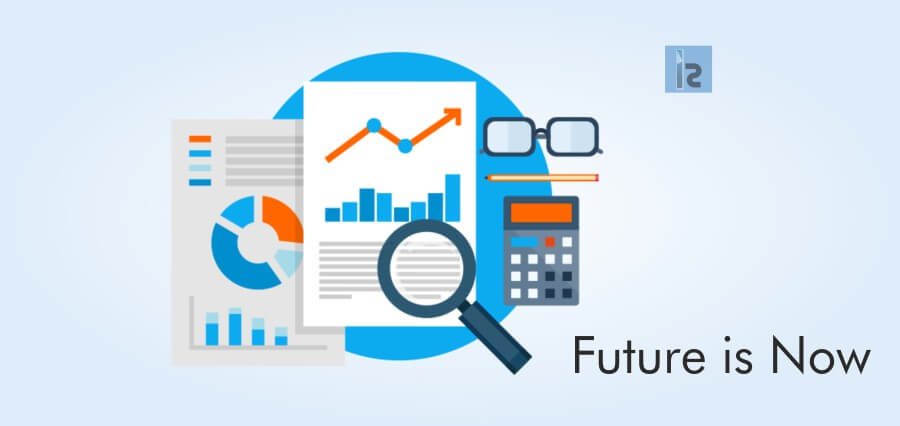‘Change’ is the only constant and true in the Business world. On the other hand, there were no tools or dashboards to oversee timelines and objectives. But, a noticeable change which has transformed the overall scenario is Project Management (PM). It is constantly changing and evolving the area of business and here are some ongoing trends that may help choosing you the path ahead in project management.
Artificial Intelligence (AI) – A touchstone by which machine learning is judged and assessed
AI is unquestionably aiding the project management workflow through an interactive interface for the available resources. Therefore, the algorithm-based suggestions conclusively boost the efficiency of the overall process of project management. You won’t be replaced by a limbless drone any moment now but you would better learn to play nice with AI.
With the world-altering inventions in steam power, electricity, and the internet, AI is driving the society into a never seen industrial revolution. AI is automating the tasks ranging from scheduling to data visualization. Predicting patterns based on past activities and compiling further tasks is an exceptional ability of AI where innovation is outrunning imagination.
AI technologies impacting the largest number of businesses are:
Knowledge-based Systems: This system enables to understand the context of the data being processed that supports human learning and decision-making.
Machine Learning (ML): With meager human intervention machine learning analyzes the data by detecting the patterns and improves decision making.
Decision Management: It has created a set of processes based on protocols and logic which has automated decision making.
Power of Emotional prowess
If productivity has to be equivocal to the assigned work driving out the emotional power is imperative. If the technical skills are staying rock steady, the work with diligence and persistence must be ensured at any cost. The better teamwork with people, the higher are the chances of your plans to progress without a pitfall. This ultimately states the project manager’s people-focused role as a beneficient listener, anticipating needs, adept coordinator, considerate negotiator, and a motivational leader.
Multitasking is paramount to any machine but it lacks a critical ingredient that is humanity in successful project management. The set of social skills, such as soft skills and skills in coordination, teaching, and negotiating are increasingly regarded as the most valuable professional assets.
The most demand-in job skills for 2020 in the World Economic Forum’s Future of Work Report, soft skills are ranked as employers’ second most desired skills.
Inclusive Hybrid Approach is the far up priority
With the varying and improved implementation of methodologies, the one-size-fits-all approach is being incompetent. The Waterfall techniques are been modified with Agile and Scrum to adopt modern strategies to help various processes of project management. This implementation is the best suiting for the scenarios where larger projects need multiple project managers to be involved in it. Therefore, the corporate world is in considerable demand for a higher number of hybrid project managers who are inclusive to profuse methodologies.
Companies are acquiring simultaneous and flat hierarchy, replacing the linear traditional methodologies for developing products. Not only in software development, but Agile principles are also dominating finance, construction, and, marketing sectors. Innovative and trusted processes are coming together in the form of new mixtures.
Kanban Boards
Kanban Board refers to “billboard” in English. The theory was initially introduced and implemented by Toyota, the automobile company to improve manufacturing. Now, the theory is widely being integrated into the various action items of the project management methodology. Kanban is a categorization that makes use of visual boards that consists of a set of cards and a grid that helps to manage the workflow. Its implementation is proving helpful as the project managers avoid prominent stagnation in the tools being used for managing the projects thus helping innovation to a greater extent.
It is being more beneficial in smaller Agile projects that undergo many changes. Kanban boards give the leverage of managing tasks in a more centralized way, thereby avoiding inaction.
Improved focus on data analytics and metrics. All the aspects of a project comprise huge data that has to be managed efficiently and optimally. Project managers are leveraging data insights to make informed decisions to execute the project in a better way and increase business growth.
Whether it’s project planning, quality control, or risk approximation, data analytics has already started shaping the project management world. The gathered data enables you to form reliable teams, team size, the inclusion of productive team members and skill sets needed to manage projects better.
Project management: An Eye Hereafter
Future predictions say approaches will be customized to suit specific project environments. Mentoring, coaching, and support will gain more prominence where skills will outrank certifications. Project management (PM) trends will constantly change the way large businesses operate, so you with PM at the center of all, may become the driving force of transformation in 2019 and beyond.
– Rajkunwar Bhosale

